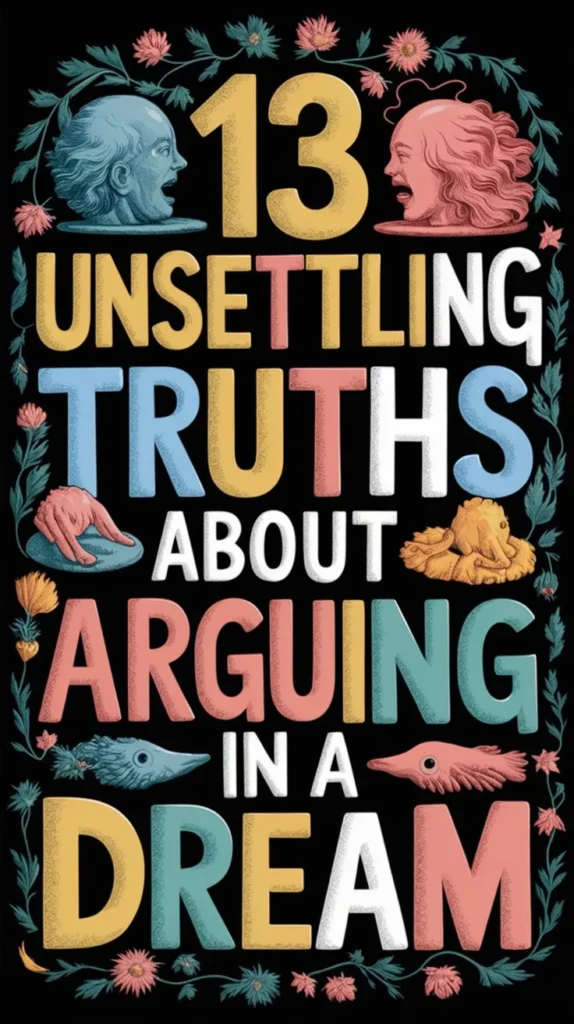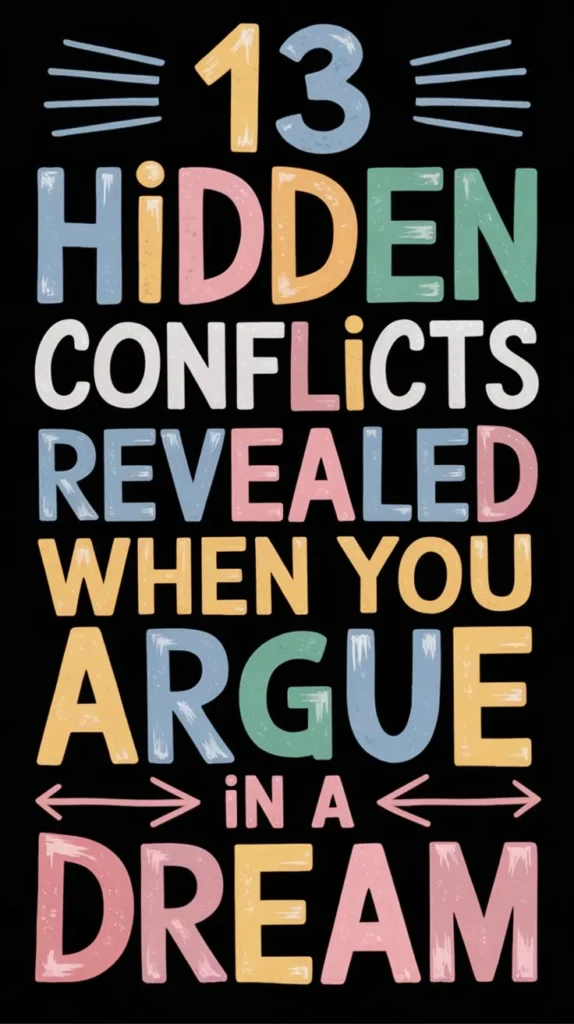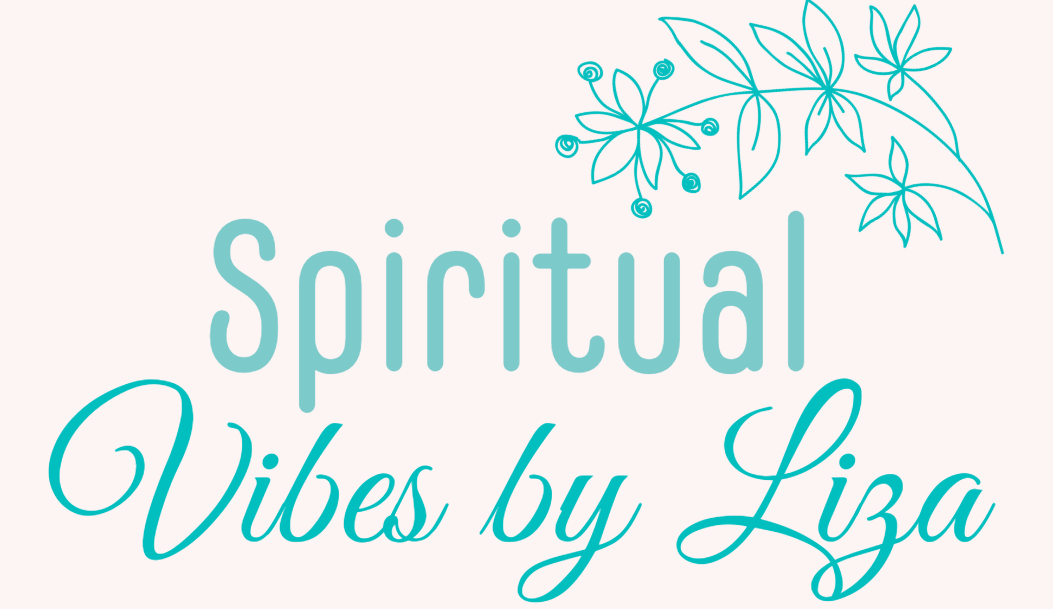13 Spiritual Meaning of Arguing in a Dream: Uncover The Spiritual Secrets
When you find yourself arguing in a dream, it’s more than just a reflection of your waking frustrations. It’s a spiritual nudge, urging you to confront the unconscious patterns and emotional triggers that hold you back. As you explore the symbolism and emotions behind these dreams, you’ll begin to uncover hidden insecurities and fears that influence your thoughts and actions.
But what if you could tap into this inner wisdom, quiet the mind chatter, and redirect your energy towards spiritual growth and awareness? The question is, are you ready to face the parts of yourself that you’ve been trying to ignore?
In a Nutshell

- Recognize that arguing in dreams often symbolizes inner turmoil and unresolved emotional conflicts, rather than literal conflict with others.
- Identify and confront your inner demons, such as self-doubt and fear of failure, to resolve underlying emotional triggers.
- Practice mindful contemplation to gain a deeper understanding of your thoughts, emotions, and behaviors, and approach reflections with inner honesty.
- Identify patterns and triggers contributing to arguing in dreams, and practice self-compassion to treat yourself with kindness and understanding.
- Integrate dream insights into reality through intention, self-reflection, and exploring the psyche, and use dream journaling as a powerful tool for integration.
Identifying Inner Conflict Sources
As you plunge into the spiritual meaning of arguing in a dream, it’s vital to recognize that the conflict doesn’t just stem from external factors, but also from the turmoil brewing within.
You see, the dream is a reflection of your subconscious mind, and that inner turmoil can manifest as arguments with others.
To truly understand the spiritual meaning of these dreams, you need to identify the sources of this inner conflict.
Take a step back and examine your personal weaknesses.
Are there any areas where you feel insecure or uncertain?
Perhaps you’re struggling with self-doubt or fear of failure.
These inner demons can fuel the arguments in your dream, making it essential to acknowledge and confront them.
Uncovering Hidden Emotional Triggers
Your inner weaknesses and insecurities can fuel the arguments in your dreams, but what about the emotional triggers that lie beneath the surface?
These hidden triggers can be rooted in past experiences, unresolved emotions, or unconscious fears. They can manifest as hidden insecurities, influencing your emotional landscapes and shaping your reactions to perceived threats or conflicts.
- Reflect on your emotional responses: When you argue in your dreams, what emotions arise? Are you angry, fearful, or defensive? Identifying the emotions that surface during these arguments can help you pinpoint the underlying emotional triggers.
- Explore your emotional landscapes: What memories or experiences evoke strong emotions in you? Are there any recurring themes or patterns in your emotional responses? Understanding your emotional landscapes can help you recognize the hidden triggers that fuel your dream arguments.
- Look for patterns in your relationships: Do you find yourself arguing with the same people or about the same topics in your dreams? These patterns can reveal underlying emotional triggers related to specific relationships or situations.
Recognizing Spiritual Blocks and Barriers
Unraveling the spiritual threads underlying your dream arguments can reveal hidden blocks and barriers that hinder your growth and progress.
As you excavate deeper, you may discover that these internal conflicts are symptoms of deeper spiritual issues. Recognizing these blocks is pivotal to breaking free from the cycles of stagnation and frustration.
You may be experiencing energy leaks, where your essential force is being drained by negative thought patterns, emotions, or relationships.
This can lead to spiritual stagnation, causing you to feel stuck and disconnected from your higher self. By acknowledging these blocks, you can begin to release the pent-up energy and redirect it towards your spiritual growth.
Take a closer look at your dream arguments and identify the recurring themes, emotions, and patterns.
Are you struggling with self-doubt, fear, or anxiety? Are there unresolved issues or unhealed wounds that need attention?
Communicating With Your Subconscious
During moments of quiet contemplation, you may find yourself reflecting on the dream arguments that have been plaguing your subconscious.
Crucial to recognize is that your subconscious is trying to communicate with you, even if the messages seem cryptic or unsettling.
By tuning in to your inner world, you can begin to decipher the underlying causes of these dream disputes.
To establish a more profound connection with your subconscious, try the following:
- Practice mindfulness meditation to quiet your mind chatter and tap into your inner dialogue.
- Engage in journaling or free-writing to uncover hidden fears, desires, and motivations that may be driving your dream arguments.
- Set aside time for introspection, asking yourself questions like “What am I truly afraid of?” or “What’s holding me back from achieving my goals?”
Letting Go of Ego and Pride
How do you react when your dream self is confronted with opposition or criticism? Do you become defensive, argumentative, or even aggressive?
This reaction stems from your ego’s need to protect its boundaries and maintain a sense of control. However, in the sphere of dreams, this ego-driven response only fuels the argument, making it more intense and unresolved.
To break free from this cycle, you must recognize that your ego’s pride masks are preventing you from truly listening and understanding the opposing perspective.
These masks hide your vulnerabilities, making you more invested in winning the argument than in finding a resolution. By letting go of your ego’s need to be right, you can begin to dissolve the boundaries that separate you from others.
This allows for a more open and receptive state, where you can engage in a meaningful exchange and find common ground. Remember, your dream self isn’t defined by its ego; it’s a reflection of your higher self, yearning for connection and understanding.
Resolving Unfinished Business
Your dream arguments often serve as a reflection of unresolved issues from your waking life, lingering emotions that refuse to dissipate.
These unresolved emotions can stem from past regrets, unfinished conversations, and unaddressed conflicts. When you avoid confronting these issues in your waking life, they can manifest as arguments in your dreams.
It’s essential to acknowledge and address these unresolved emotions to resolve the unfinished business in your life.
Ask yourself:
- What past regrets are still haunting you, and what steps can you take to make amends or find closure?
- Are there any unfinished conversations that you need to have with someone, and what’s holding you back from having them?
- What unaddressed conflicts are still simmering beneath the surface, and what actions can you take to resolve them?
Calming the Inner Critic’s Voice
As the arguing voices in your dream begin to quiet down, you may discover that the loudest critic is often the one within.
This inner critic can be a relentless judge, perpetuating self-doubt and fear. To calm this voice, you must learn to acknowledge and accept your thoughts without judgment.
Practice mindful meditation to cultivate inner peace and quiet the mind. Focus on your breath, allowing your thoughts to arise without attachment. As you do, you’ll begin to recognize the patterns and triggers of your inner critic.
Notice how this voice speaks to you – is it harsh, critical, or perfectionistic? Once you’re aware of its tone, you can start to reframe its messages, replacing criticism with kindness and compassion.
Remember, your inner critic isn’t a reflection of your worth; it’s a product of past experiences and societal conditioning. By acknowledging its presence and reframing its messages, you can quiet its voice and find peace.
As you do, you’ll discover that the arguing voices in your dream begin to fade away, replaced by a sense of inner harmony and understanding.
Releasing Negative Emotions Safely
When emotional turmoil from your dream argument spills over into your waking life, it’s vital to release those pent-up feelings safely, lest they simmer beneath the surface, waiting to boil over again.
You’ve likely experienced the overwhelming urge to vent frustrations, but doing so in a way that doesn’t harm yourself or others is imperative.
To facilitate a healthy emotional release, try these strategies:
- Write down your feelings in a journal, allowing yourself to process and release them on paper.
- Engage in physical activity, like a brisk walk or yoga, to channel your emotions into a productive outlet.
- Practice deep, conscious breathing, focusing on the sensation of the air moving in and out of your body to calm your mind and spirit.
Forgiving Yourself and Others
Let’s plunge into the complex process of forgiveness, which can be a formidable task, especially when it comes to yourself.
You may be carrying around self-blame patterns, beating yourself up over past mistakes or perceived wrongs. Crucial to recognize is that holding onto guilt and shame only perpetuates a cycle of negativity.
To break free, you must learn to forgive yourself. Start by acknowledging your imperfections and the humanity that comes with making mistakes. Offer yourself heartfelt apologies, just as you’d to a close friend. Remember, you did the best you could with the resources you’d at the time.
Now, extend this forgiveness to others. Recognize that they, too, were doing the best they could with their own limitations.
Holding onto resentment only drains your energy and creates more conflict. By forgiving others, you’re not condoning their actions, but rather releasing the negative emotions associated with them.
As you work through the process of forgiveness, you’ll begin to feel a weight lifting off your shoulders. You’ll start to see others in a new light, and your relationships will transform.
Forgiveness is a powerful tool for healing and growth – are you ready to take the first step?
Practicing Self-Reflection and Awareness
With the emotional baggage of guilt and shame lifted, you’re now ready to dive deeper into the domain of self-reflection and awareness.
This is where you’ll uncover the underlying reasons behind your arguing in dreams. Through mindful contemplation, you’ll gain a deeper understanding of your thoughts, emotions, and behaviors.
As you set out on this journey of self-discovery, remember to:
- Approach your reflections with inner honesty, acknowledging your flaws and imperfections
- Identify patterns and triggers that may be contributing to your arguing in dreams
- Practice self-compassion, treating yourself with kindness and understanding as you navigate this process
Cultivating Empathy and Understanding
As you gain a deeper understanding of your thoughts, emotions, and behaviors, you’re better positioned to cultivate empathy and understanding towards yourself and others.
This empathy allows you to recognize that everyone, including yourself, has their own unique struggles and challenges. You begin to see that people’s reactions and behaviors are often a reflection of their own inner turmoil, rather than a personal attack on you.
Building Healthy Communication Patterns
Embracing the nuances of human interaction, you’re now poised to build healthy communication patterns that foster constructive dialogue and mitigate the potential for conflict.
By developing these patterns, you’ll create a safe space for open expression, encouraging others to share their thoughts and feelings without fear of judgment or retribution.
To achieve this, focus on:
- Active listening: Give your undivided attention to the speaker, avoiding interrupting or mentally preparing your response. Instead, focus on understanding their perspective, and show empathy through verbal and non-verbal cues.
- Clarifying intentions: When conflicts arise, seek to understand the underlying intentions and needs of all parties involved. This helps to dispel misconceptions and prevents miscommunication.
- Non-confrontational language: Use “I” statements to express feelings and thoughts, rather than “you” statements that can come across as accusatory. This helps to de-escalate tensions and promotes a more constructive dialogue.
Integrating Dream Insights Into Reality
Many dreamers find themselves wondering how to translate the symbolic language of their subconscious into tangible, real-life changes.
Integrating dream insights into reality requires intention, self-reflection, and a willingness to explore the depths of your psyche. You’ve taken the first step by acknowledging the significance of your arguing dreams; now it’s time to bridge the gap between your subconscious and conscious mind.
A powerful tool for integration is dream journaling.
By recording your dreams and reflecting on their symbolism, you’ll begin to identify recurring themes and emotions. This practice helps you tap into your subconscious, allowing you to better understand the underlying messages in your dreams.
As you journal, look for patterns and connections between your dreams and waking life.
This will help you recognize areas where you can apply the insights from your dreams to make positive changes.
Mindfulness practices, such as meditation and deep breathing, can also aid in integration.
These practices quiet the mind, allowing you to tune into your intuition and listen to the whispers of your subconscious.
Frequently Asked Questions
What if I Argue With a Stranger in My Dream, What Does It Mean?
When you argue with a stranger in your dream, you’re likely confronting your own inner conflict, symbolizing a Dream opponent that represents an aspect of yourself you’re struggling to understand or accept, urging you to explore and resolve the internal tension.
Can Recurring Arguing Dreams Be a Sign of a Past Life Issue?
You’re wondering if recurring arguing dreams could be a sign of a past life issue. Yes, they might be a reflection of unresolved conflicts, hinting at past life karma that’s still seeking resolution, and your subconscious is nudging you to confront and heal.
How Do I Know if My Arguing Dream Is a Spiritual Warning or Guidance?
You’re wondering if your arguing dream is a spiritual warning or guidance. Tune into your intuition: do you feel a sense of urgency or peace? Look for dream signs like recurring themes or symbols, and explore your inner conflict – is your subconscious trying to resolve something?
Can Arguing in a Dream Be a Manifestation of My Own Self-Doubt?
You’re wondering if your arguing dream could be a reflection of your own self-doubt. Yes, it’s possible – your subconscious might be projecting fears, revealing an inner conflict that’s ripe for acknowledgment and healing, urging you to confront and overcome those nagging doubts.
Do Arguing Dreams Always Have a Negative Spiritual Meaning?
You wonder if arguing dreams always have a negative spiritual meaning, but remember that dream symbolism can be complex. Inner conflict can manifest as arguments, revealing unresolved emotions, but it’s not always negative – it can be a call to self-reflection, growth, and integration.
Conclusion
As you continue to explore the spiritual meaning of arguing in a dream, remember that it’s a call to confront your inner demons and awaken to your true self. By embracing these 13 strategies, you’ll open the doors to self-awareness, compassion, and spiritual growth. Trust that your dreams are guiding you towards a path of inner peace, and with every step, you’ll become more attuned to your intuition and more connected to your highest self.









Liza Anderson is a spiritual enthusiast and the creator of Spiritual Vibes by Liza. With a heart full of compassion and a soul driven by the quest for universal harmony, Liza dedicates her life to guiding others on their spiritual journey. Her blog serves as a beacon for those seeking enlightenment, offering a blend of wisdom, tranquility, and insight into the mysteries of the cosmos.







